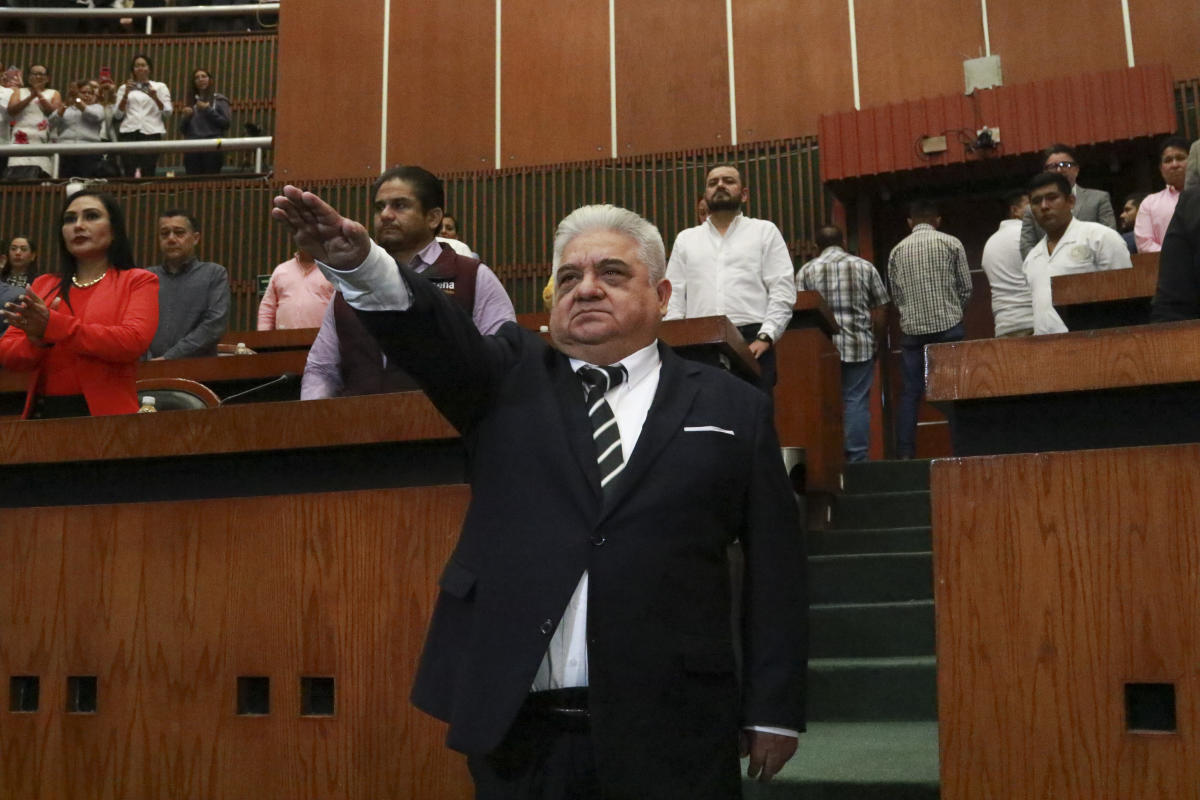CHILPANCINGO, Mexico (AP) — A new mayor was sworn in Thursday in a city in southern Mexico where his predecessor was killed and beheaded less than a week after taking office.
The new mayor, Gustavo Alarcón, a doctor, had been elected as an alternate on the same ticket as deceased Mayor Alejandro Arcos in the June election.
Arcos took office on Oct. 1 in the violence-wracked city of Chilpancingo, the capital of the southern state of Guerrero. But his beheaded body was found in a pickup truck Sunday; his head had been placed on the vehicle’s roof. Two rival drug gangs are fighting to control the city.
Alarcón took the oath of office with a minimal security detail of a handful of police officers Thursday. He pledged to “work for the good of all” and fight the violence that has gripped Chilpancingo for years.
Before he was killed, Arcos had told local media he needed more protection, but officials said no formal request had been received. State and federal governments can offer mayors bulletproof vehicles, additional bodyguards and emergency alert systems. It was not clear if Alarcón had been granted that kind of protection.
Chilpancingo, a city of about 300,000, is dominated by two warring drug gangs, the Ardillos and the Tlacos. One staged a demonstration of hundreds of people, hijacked a government armored car, blocked a major highway and took police hostage in 2023 to win the release of arrested suspects.
Earlier this week, federal Public Safety Secretary Omar García Harfuch said four mayors from other towns in Mexico had requested protection on Monday, a day after Arcos’ remains were found. The requests came from Guerrero and another violence-plagued state, Guanajuato.
The situation in Guanajuato is so bad that ahead of the country’s June elections, at least four mayoral candidates were killed.
But violence in Guerrero reached such unprecedented levels that earlier this year, Roman Catholic bishops announced they had helped arrange a truce in another part of the state between two warring drug cartels.
At the time, former president Andrés Manuel López Obrador— who refused to confront the gangs — said he approved of such talks.
“Priests and pastors and members of all the churches have participated, helped in pacifying the country. I think it is very good,” said López Obrador, who left office Sept. 30.
____
Follow AP’s coverage of Latin America and the Caribbean at https://apnews.com/hub/latin-america





